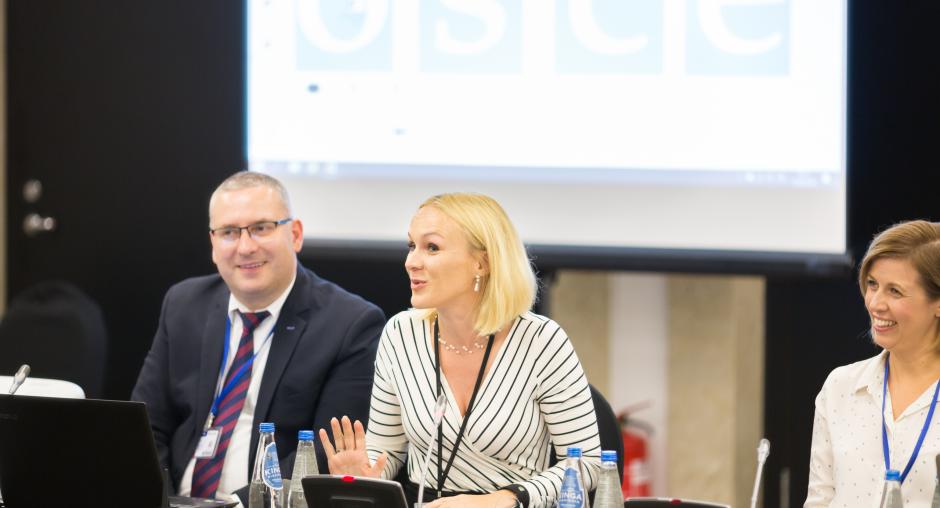International human rights standards and good practices in policing assemblies in Western Balkans focus of event co-organized by OSCE/ODIHR in Warsaw

Challenges and good practices in ensuring human rights-compliant assembly policing in the Western Balkans region and related available resources were explored and presented at an event in Warsaw on 17 September 2018, during the Human Dimension Implementation Meeting.
Some 40 representatives of civil society and state bodies took part in the event, which was organized by the OSCE Mission to Bosnia and Herzegovina, the OSCE Office for Democratic Institutions and Human Rights (ODIHR) and the European Center for Not-for-Profit Law (ECNL).
“Assemblies take place in public spaces and often carry messages of great public concern,” said Anita Danka, ODIHR’s Human Rights Adviser. “The way assemblies are policed, therefore, creates a visible manifestation of how a state is committed to and capable of facilitating the exercise of fundamental freedoms.”
Igor Ličina, Human Rights Officer at the Mission to Bosnia and Herzegovina, said: “The key task of upholding human rights while facilitating assemblies can only be effectively dealt with if both the legal framework and policing practices are in line with international human rights standards. The Mission and ODIHR have been successfully co-operating in providing assistance to the authorities in improving both the laws and their application.”
Based on ODIHR’s Human Rights Handbook on Policing Assemblies, the Office has been assisting OSCE participating States in the region in building the skills of law enforcement authorities in policing assemblies in line with internationally recognized good practices. During the event, the Bosnian, Croatian, Serbian and Macedonian-language versions of the Handbook were presented to the participants.
ODIHR’s expertise in the area builds upon its work on monitoring assemblies in participating States. The Office also provides tools to support the work of independent observers.
“Accountability to the public is an essential element of human rights-friendly policing,” said Andrea Judit Tóth, Program and Communication Manager at ECNL. “Independent monitoring of the exercise of the freedom of peaceful assembly provides a valuable contribution to achieving accountability and is an important diagnostic tool for informed discussions on how to improve the protection of human rights.”
